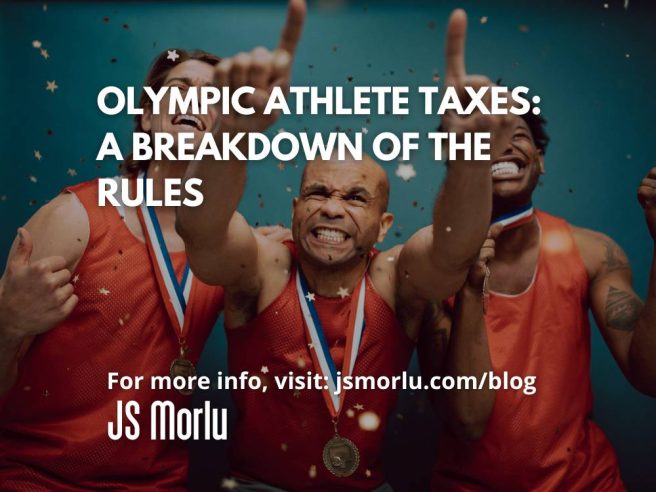The Olympics is a global spectacle of human achievement, where athletes push the boundaries of physical and mental capabilities. While the world is captivated by the drama of competition, there’s a less glamorous side to the story: the financial realities faced by these extraordinary individuals. One such aspect is the taxation of Olympic prize money. Let’s delve into the intricacies of this issue and explore how legislation has shaped the financial landscape for our nation’s heroes.
The Golden Question: Are Olympic Medals Taxable?
Historically, the Internal Revenue Service (IRS) has treated prize money, including Olympic winnings, as taxable income. This means that every dollar earned on the podium was subject to federal taxes. The logic is straightforward: prize money is considered income, and like any other form of income, it’s taxable. This rule has been in place since 1986, affecting a wide range of prizewinners, from lottery winners to game show champions.
For U.S. Olympic athletes, this meant a significant portion of their hard-earned prize money was going to the government. Considering that the U.S. Olympic and Paralympic Committee (USOPC) once awarded $37,500 for gold, $22,500 for silver, and $15,000 for bronze, the tax implications were substantial. It’s important to note that even the medals themselves, despite their intrinsic value being far less than the cash prize, were also considered taxable income.
A Victory for Athletes: The United States Appreciation for Olympians and Paralympians Act
Recognizing the unique sacrifices and achievements of Olympic athletes, Congress passed a landmark piece of legislation in 2016: the United States Appreciation for Olympians and Paralympians Act (HR 5946). This bipartisan bill introduced a significant tax break for these national heroes.
The act provided a tax exemption for prize money awarded by the USOPC to Olympic and Paralympic athletes earning less than $1 million annually. This exemption covers both the cash prize and the value of the medals. It was a much-needed relief for athletes who often dedicate their lives to training, with limited financial resources.
The Impact of the Tax Exemption
The passage of HR 5946 has been a game-changer for many Olympic athletes. For those without lucrative endorsement deals, the prize money can be a crucial financial lifeline, helping to offset the exorbitant costs of training, equipment, and travel. Without the tax exemption, a significant portion of this income would disappear to taxes, potentially creating a severe financial strain.
It’s important to note that the tax landscape for Olympic athletes is still evolving. While the USOPC prize money is exempt, winnings from other international sports organizations, such as World Athletics (WA) or the International Boxing Association (IBA), are still subject to taxation. This highlights the need for ongoing legislative review to ensure fair treatment for all Olympic athletes.
The Million-Dollar Question: Who Benefits Most?
The tax exemption is specifically designed to help athletes who rely heavily on their Olympic earnings. The $1 million income threshold ensures that the benefits primarily go to those who need it most. High-earning athletes with substantial income from endorsements or professional sports careers are less likely to be impacted significantly by the tax on their Olympic prize money.
Conclusion
The journey to Olympic gold is a grueling one, demanding years of dedication and sacrifice. It’s essential to recognize the financial challenges faced by these athletes and applaud the legislative efforts to provide some relief. While the tax exemption is a step in the right direction, there’s still room for improvement. As the global sporting stage continues to evolve, so too must the tax policies that support our nation’s athletic heroes.
By understanding the tax implications of Olympic prize money, we can better appreciate the immense dedication and perseverance of these athletes. Their pursuit of excellence inspires us all, and it’s our responsibility to ensure that their financial well-being is supported.
JS Morlu LLC is a top-tier accounting firm based in Woodbridge, Virginia, with a team of highly experienced and qualified CPAs and business advisors. We are dedicated to providing comprehensive accounting, tax, and business advisory services to clients throughout the Washington, D.C. Metro Area and the surrounding regions. With over a decade of experience, we have cultivated a deep understanding of our clients’ needs and aspirations. We recognize that our clients seek more than just value-added accounting services; they seek a trusted partner who can guide them towards achieving their business goals and personal financial well-being.
Talk to us || What our clients says about us


